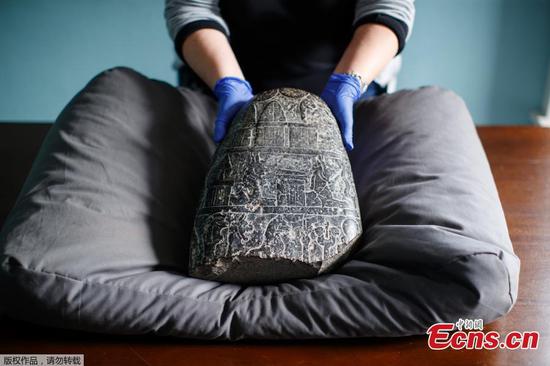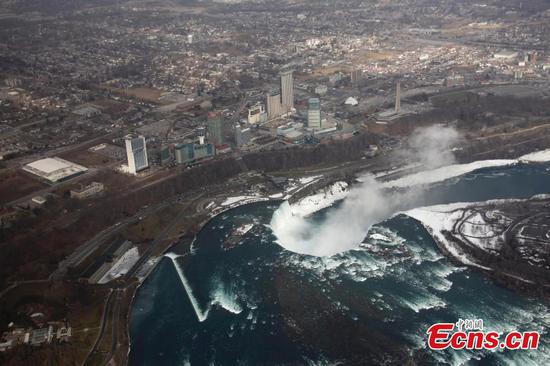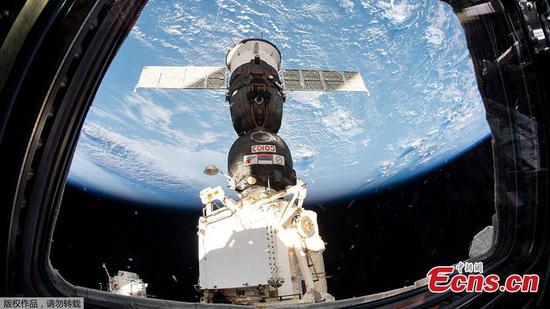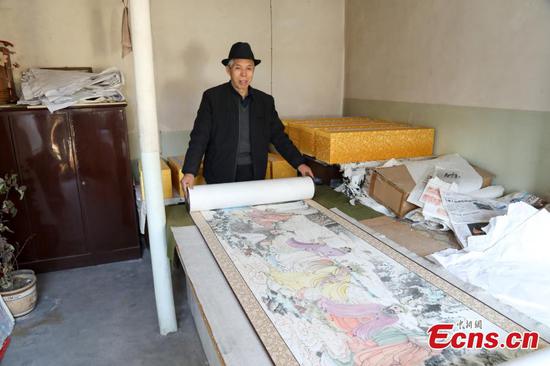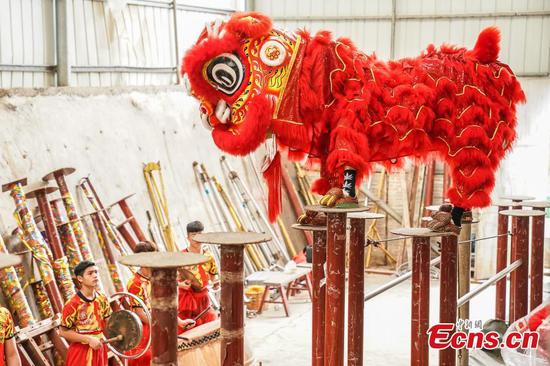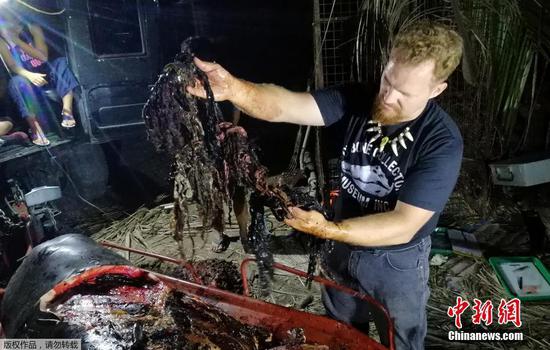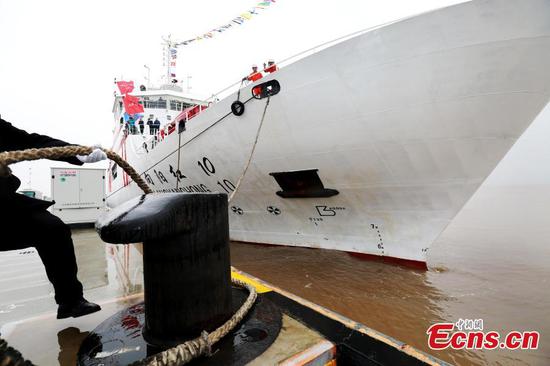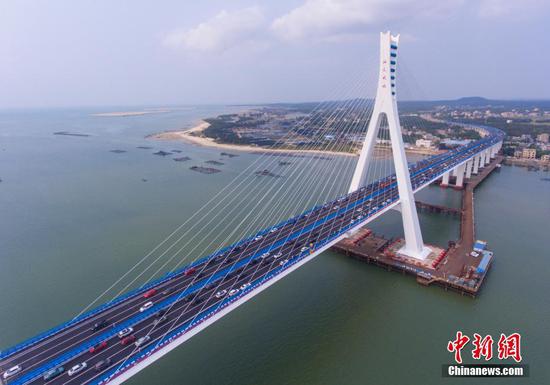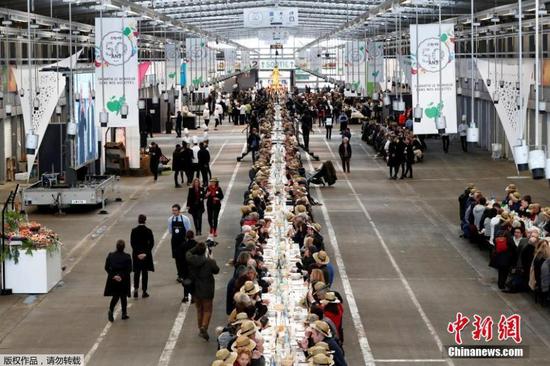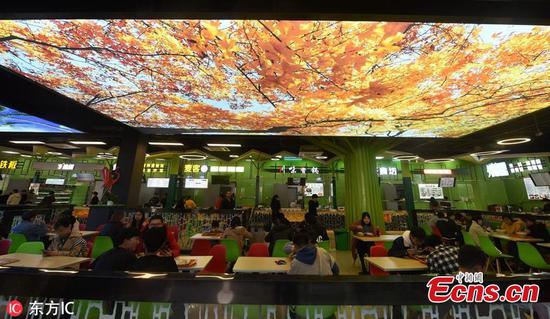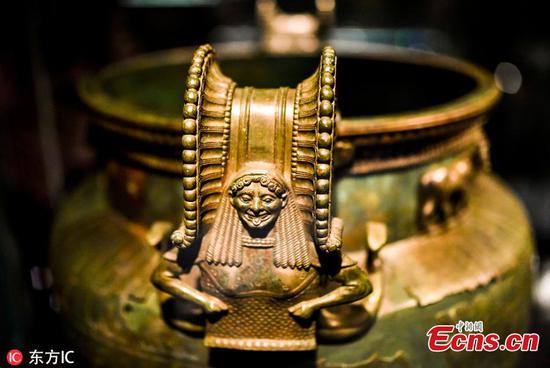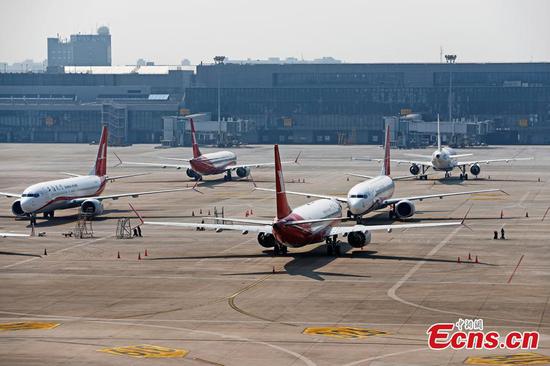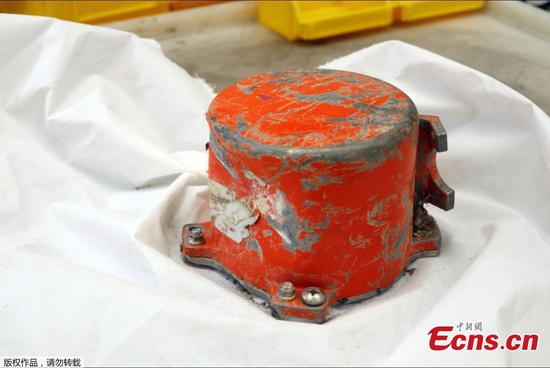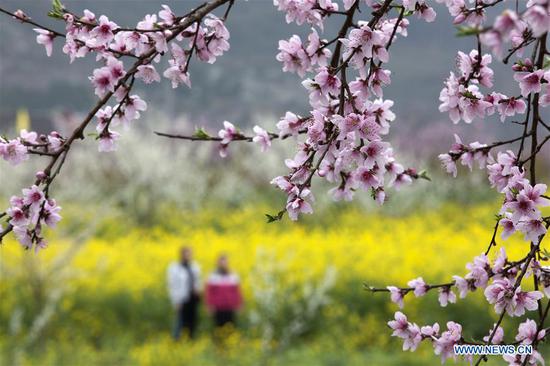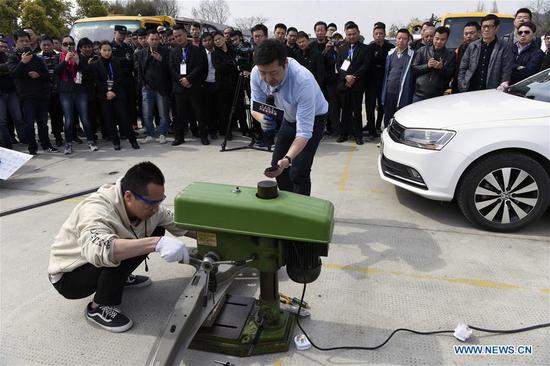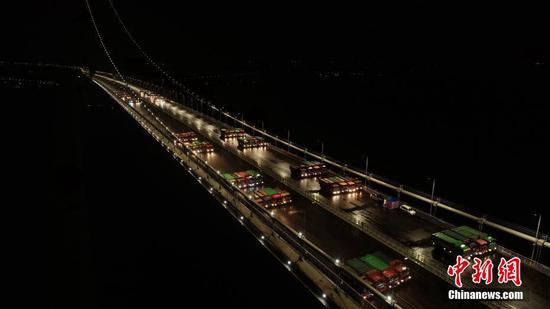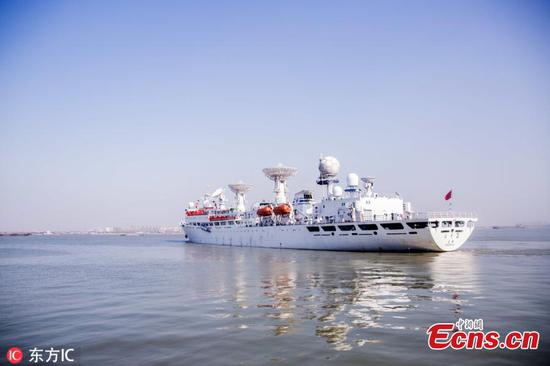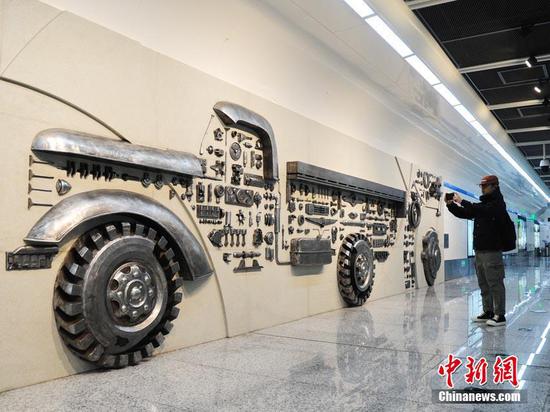
Workers tend to pear trees on a terrace at an eco-industrial park in Luanxian, Hebei province. (Photo/Xinhua)
Model combining ecological restoration and development promises win-win solution. Hou Liqiang reports.
The government's ambitious plans to promote ecological progress, a priority of the central leadership, have created a potential multitrillion-yuan market for soil remediation work in the next three decades.
Many companies involved in the industry have already experienced robust growth, but the potential of the market has yet to be fully unlocked.
While a lack of talent with adequate expertise is one hindrance, industry insiders say businesses involved in soil remediation also face financial challenges because returns are not immediate.
They say the establishment of a business model combining ecological restoration with development projects is the key to tapping the industry's massive potential, because it could not only increase companies' incomes, enabling even bigger investment in treating polluted soil, but also help free cash-strapped local governments from the need to raise funds for expensive remediation work.
Since Xi Jinping was elected general secretary of the Communist Party of China Central Committee in November 2012 and China's president in March 2013, he has given ecological protection unprecedented emphasis.
Elion Resources, a private company headquartered in Beijing, was one of the first enterprises to spot business opportunities in the central leadership's increasing attention to the environment. Company vice-president Zhao Jinling said it decided to enter the ecological remediation industry in early 2014, with soil remediation and desertification control among its major businesses.
The rapid growth of its ecological remediation branch shows Elion made the right choice.
"The branch has achieved annual revenue growth of about 100 percent on average," Zhao said.
It started with only 20 employees, but had almost 100 by the end of 2014, with annual turnover of 400 million yuan ($59.8 million). It now has more than 1,000 employees, Zhao said, and revenue last year shot up to 5 billion yuan.
"Obviously, the high attention from the central leadership does provide an impetus for the market's development," he said.
Gaiya Env, headquartered in Suzhou, Jiangsu province, has experienced even more explosive growth since it was established in 2012, with the soil remediation solution provider's revenue rising by about two-thousandfold, according to Cheng Gongbi, the company's founder and president.
The company earned 60,000 yuan in 2012 and 120 million yuan last year.
Cheng, who has a PhD in geology, said the huge potential of China's environmental protection market was one of the factors that prompted him to quit his job at an environmental company in the United States in 2011 and return to China to found Gaiya.









